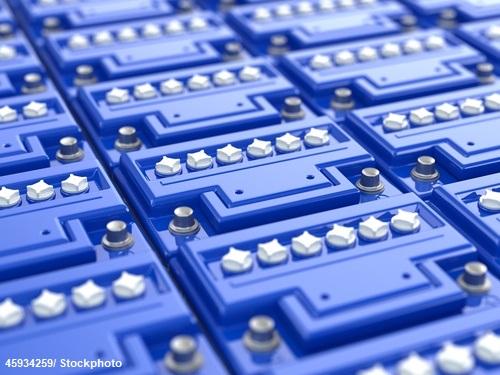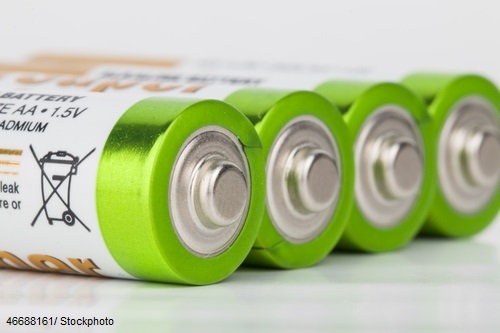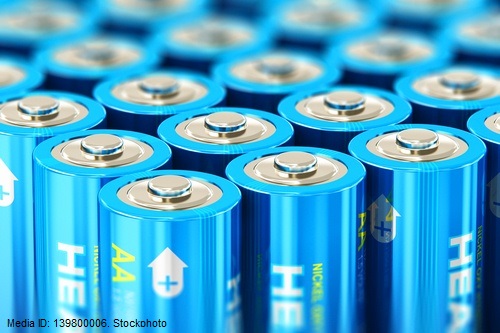International cooperation: South Korea uses digital hydrogen filling system from German BAM
The German Federal Institute for Materials Research and Testing (BAM) is setting up a digitally networked hydrogen filling plant for research purposes. The aim is to carry out comprehensive tests on the safety of this relatively new technology and to monitor the process digitally. Institutions from South Korea are also using the BAM facility as part of the international research cooperation. In Germany, BAM is responsible for safety in the technology and chemical sector and therefore built a digital hydrogen filling plant on its test site in Brandenburg. According to BAM, the plant is currently unique in Germany and is operated as a pilot project within the scope of the “Quality Infrastructure Digital” (QI-Digital) initiative together by BAM and other institutions. Products from this industry often require KC certification or KGS certification to be approved for import and distribution in Korea.

Within the framework of a cooperation agreement, four partner institutions from South Korea will also use the facility, which is scheduled to start operation in 2024. A contract to this effect was signed at BAM in Berlin at the beginning of March 2023. The cooperation is financially supported by the South Korean Ministry of Trade, Industry and Energy (MOTIE). The focus is on a new safety system for hydrogen filling plants developed in South Korea. It uses sensors to record safety-relevant data during operation and monitors the plant in real time. During an emergency or critical situation, the system automatically provides information to the personnel to ensure their safety. As BAM writes in a press release, two companies from the private sector and two state institutions, the Korea Electronics Technology Institute and the Korea Gas Safety Corporation, are participating from South Korea.
We offer certification services for all product areas, including KC certification for consumer products and especially electronics, KC EMC certification for electronic products and KCs certification for machinery, as well as KCs for explosion-proof products. We are at your disposal for all questions regarding Korea certifications.
Feel free to contact us any time if you need assistance or have any questions regarding Korean certifications like KC, KC EMC, KCs, KCs for explosion safety products or KGS factory registration.
Tel. Europe: +49-69-271 37 69 261
Tel. US: +1 773 654-2673
Email: info@korea-certification.com
For more information you can download our free brochure “Korea Certification Made Easy – The Booklet“.
New Technical Standards for Unlicensed Radio Equipment in South Korea
At the end of December 2022, changes were announced that affect the requirements for unlicensed radios in Korea. Manufacturers can often equip mobile radios with ultra-wideband technologies with additional functions that add various specifications to the basic functions, which are intended to enable more accurate and energy-efficient positioning. Radios and similar products typically require KC-EMC certification to be approved for import and operation in Korea.

South Korea’s Ministry of Science and ICT (MSIT) amended technical standards in late December 2022 with Announcement 2022-75 to address such possible additional functions.
According to Announcement No. 2022-75, portable wireless devices for both mobile service must meet the following requirements:
- The devices must be able to operate in the 6.0-8.8 GHz frequency band.
- Inadmissible radio waves must not be emitted.
- From the start of communication with the device, radio wave emission should automatically stop within 10 seconds by default if no data/ signal is being sent or received.
- The devices must have the function of interrupting radio emission in air-mobile vehicles as well as in water vehicles. ß is this a correct statement?
- Wireless devices intended to be paired with wireless portable devices shall emit radio waves only when necessary
- The accompanying documents of the device must contain the note “Do not use in aircraft or on ships”.
Feel free to contact us any time if you need assistance or have any questions regarding Korean certifications like KC, KC EMC, KCs, KCs for explosion safety products or KGS factory registration.
Tel. Europe: +49-69-271 37 69 261
Tel. US: +1 773 654-2673
Email: info@korea-certification.com
For more information you can download our free brochure “Korea Certification Made Easy – The Booklet“.
EV battery manufacturers develop new silicon anode material
South Korean battery manufacturers in the EV sector are accelerating their development work on silicon anodes. This new material could reduce the production costs of EV batteries while increasing battery capacity. Manufacturers are trying to boost the performance of EVs with silicon anodes to compete against the flood of cheap EV batteries from China. In many cases, products from the fields of batteries and electromobility in general require KC certification for Korea in order to be approved for import and sale there.

LG Chem plans to invest about $4.7 billion over the next three years to develop new materials for EV batteries. According to a report by Business Korea, research into new anodes will make up the majority of the budget. LG Chem, for example, is working on anodes made of pure silicon, while anodes available on the market today only have a silicon content of five per cent. SKC invested 80 million US dollars in Nexeon last year. Together with SKC, the British developer of anodes presented a new anode with at least 15 per cent silicon content. This is currently being tested in batteries from SK On. SKC is also planning to build a production plant for silicon used in anodes.
POSCO Chemical will start up its production plant for silicon anodes later this year. Series production and sales are planned for the first half of 2024. For this purpose, POSCO Holdings bought Tera Technos and renamed it POSCO Silicon Solutions in July 2022. Currently, Daejoo Electronics is the only South Korean company that has successfully launched silicon anodes. The material for their silicon anode has a silicon content of five per cent and is sourced from LG Energy Solution. Daejoo Electronic plans to increase the silicon content to seven percent by 2027.
As mentioned earlier, silicon anodes have advantages in terms of lower cost and higher capacity of the batteries. The current main material for EV battery anodes is graphite. It is estimated that a pure silicon anode could have 1,000 times the capacity of a graphite anode. The price of graphite has risen with the increasing number of EVs sold. The current price per tonne is about 800 US dollars and will rise to 1,000 US dollars by 2025. Last year, China contributed 82 per cent of global graphite production. The global market for silicon anodes will be worth 6.92 billion US dollars in 2026, according to experts, while annual growth will be 23.4 per cent.
Certifications for the Korean market are a complex hurdle and difficult to navigate due to different authorities and certification systems. With over 15 years of experience in the certification business, MPR International GmbH is your best point of contact for competent service when it comes to exporting to Korea. For example, KC Safety is relevant for electronics and household products, which are mostly intended for consumers, as well as products for children and babies.
Feel free to contact us any time if you need assistance or have any questions regarding Korean certifications like KC, KC EMC, KCs, KCs for explosion safety products or KGS factory registration.
Tel. Europe: +49-69-271 37 69 261 Tel. US: +1 773 654-2673
Email: info@korea-certification.com
For more information you can download our free brochure “Korea Certification Made Easy – The Booklet“.
South Korea plans to ease regulations to promote investment in the battery and energy industry
The South Korean government plans to ease rules and regulations in the battery, EV and energy industries. This is expected to attract the equivalent of US$2.1 billion in investment and create 12,000 new jobs. The decision was made in early March during a government meeting led by Prime Minister Han Duck-soo. The battery and power industry is a multi-faceted intersection for product categories of many other industries. Products in these fields often require KC certification, KCs certification or other Korean product certifications to be approved for the Korean market.

LG Energy Solution Ltd. could be the first company to benefit from the relaxed regulations, writes Pulsenews Korea. The nation’s largest producer of EV batteries is currently facing problems for approval to build its battery factory in Ochang, North Chungcheong Province. LG Energy has to comply with certain regulations when constructing buildings that handle hazardous substances. These were ultimately observed, but only because the factory was already planned as a so-called “smart factory”. On the other hand, exemptions were granted for fire protection, which was found to be deficient in a test by the Korea Fire Institute. However, the process was time-consuming and threw schedules into disarray. The battery manufacturer could only proceed with the construction of the factory when the government intervened with a fast-track procedure for further safety testing.
The government also decided to immediately suspend certain rules for participation or comment on energy projects in order to speed them up. These include the construction of an LNG plant in Dangjin, an LNG storage depot in Gwangyang and the designation of an industrial zone in the Masan Free Trade Zone. In addition, the robotics industry is to be promoted by removing regulations. The government expects the industry to grow 13 per cent annually from the current US$28.2 billion to US$83.1 billion. For example, there are plans to expand the use of robots and make their use on pavements possible.
Certifications for the Korean market are a complex hurdle and difficult to navigate due to different authorities and certification systems. Feel free to contact us any time if you need assistance or have any questions regarding Korean certifications like KC, KC EMC, KCs, KCs for explosion safety products or KGS factory registration.
Tel. Europe: +49-69-271 37 69 261 Tel. US: +1 773 654-2673
Email: info@korea-certification.com
For more information you can download our free brochure “Korea Certification Made Easy – The Booklet“.
SK On takes aim at Chinese monopoly for developing low-cost LFP batteries
The South Korean battery industry is taking further steps in the development of lithium iron phosphate (LFP) batteries. SK On presented a corresponding prototype at the Interbattery trade fair in March, and LG Energy Solution Ltd (LGES) is expanding its product portfolio to include LFP cells. SK On is the first company from South Korea to show a pouch bag cell with LFP chemistry at the country’s largest trade fair. The battery manufacturer has been researching and developing pouch-bag cells since 2021, as demand from the automotive industry has increased since then. Although there is no fixed date for the market launch of the new battery type, SK On expects to start production quickly after the current testing phase. Machines and equipment needed to manufacture products in these product categories generally require KC certification to be approved for import and sale in Korea.

LG Energy Solutions Ltd (LGES) currently manufactures LFP batteries exclusively for electricity storage systems (ESS). There are plans to convert an LGES plant in Nanjing, China, for the production of LFP batteries as well as to set up an LFP production line at the Michigan plant in the USA. The new focus of South Korean battery manufacturers on LFP batteries lies in their cheaper price compared to ternary cells such as NMC, which are currently the flagship of the battery industry. Ternary cells have a higher energy density and range than LFP cells, but car manufacturers prefer LFP batteries because of the lower manufacturing costs.
Tesla already uses LFP batteries for its vehicles manufactured in China. Ford Motor Co. president and chief executive Jim Fairley expressed concerns to the press about the high cost of batteries for EVs. According to him, batteries account for more than 30 per cent of the manufacturing cost of an EV. Therefore, the US carmaker recently announced that it would work with the Chinese battery manufacturer CATL.
Certifications for the Korean market are a complex hurdle and difficult to navigate due to different authorities and certification systems. With over 15 years of experience in the certification business, MPR International GmbH is your best point of contact for competent service when it comes to exporting to Korea. For example, KC Safety is relevant for electronics and household products, which are mostly intended for consumers, as well as products for children and babies.
Feel free to contact us any time if you need assistance or have any questions regarding Korean certifications like KC, KC EMC, KCs, KCs for explosion safety products or KGS factory registration.
Tel. Europe: +49-69-271 37 69 261 Tel. US: +1 773 654-2673
Email: info@korea-certification.com
For more information you can download our free brochure “Korea Certification Made Easy – The Booklet“.



